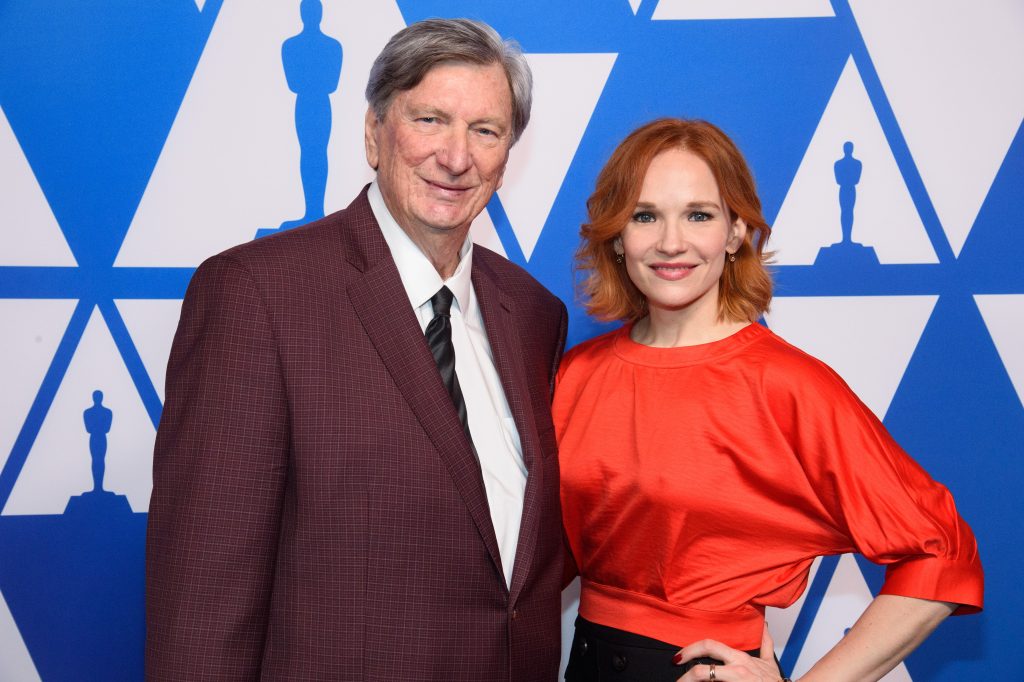February 15, 2019
by John Larson

In a move that came after immense backlash and pressure from the film industry and the general public, the Academy of Motion Picture Arts and Sciences has reversed its decision to give out awards for four categories during commercial breaks for the 91st Academy Awards and will instead have the presentation of all Oscar categories during the telecast, as has been the tradition for decades. There are currently 24 competitive categories (categories that require nominations and voting) for the Academy Awards. The 91st Oscar ceremony will take place at the Dolby Theatre in Los Angeles on February 24, 2019. ABC will have the U.S. telecast of the ceremony, which will not have a host.
The Academy had announced back in August 2018 that, in order to keep the Oscar telecast limited to three hours, some of the award categories would be dropped from the live telecast, with those categories’ awards and acceptance speeches taking place during commercial breaks. The Academy did not reveal at the time which categories would be dropped or if any part of the winners’ speeches from the dropped categories would be televised. The Academy did say that the list of winners from those dropped categories would be announced later during the show in an abbreviated format.
The controversy started when the Academy announced on February 11, 2019, that the dropped categories were Best Cinematography, Best Film Editing, Best Live-Action Short and Best Makeup and Hairstyling. The protesters, which included numerous Oscar winners and nominees, were particularly offended that the awards for cinematography and film editing, which are the backbone of filmmaking, were going to be relegated to commercial breaks. And even though the Academy tried to appease the protesters the next day by saying that the acceptance speeches from the dropped categories would be televised later during the show, the Academy would not say if the speeches would be edited. The general feeling among the protesters was that the speeches would be heavily edited for the TV broadcast.
According to Variety, Academy president John Bailey (who is a former cinematographer) and Academy CEO Dawn Hudson had a meeting on February 14 with top cinematographers and have pledged to air every awards category on the live show. The cinematographers at the meeting, according to Variety, were American Society of Cinematographers (ASC) president Kees van Osstrom and ASC members Hoyte van Hoytema (Oscar nominee for “Dunkirk”), Rachel Morrison (Oscar nominee for “Mudbound”) and Emmanuel Lubezki (Oscar winner for “Gravity,” “Birdman” and “The Revenant”)
The Academy then issued this statement: “The Academy has heard the feedback from its membership regarding the Oscar presentation of four awards – Cinematography, Film Editing, Live Action Short, and Makeup and Hairstyling. All Academy Awards will be presented without edits, in our traditional format. We look forward to Oscar Sunday, February 24.”
After the decision was made to have all Oscar categories remain in the telecast, the ASC released this open letter to the Academy that read in part: “In exploring this issue we have all been reminded of an important distinction: The Academy Awards cannot become just be another televised celebrity showcase. Our prestigious Academy has a higher purpose and must stand apart from other organizations by equally recognizing the most outstanding artists and craftspeople in all categories. We thank you for your show of respect for the hard-working members of the film community, whose dedication and exceptional talents deserve the public recognition this reversal now allows them to enjoy.”
Numerous prominent filmmakers protested the Academy’s decision to present awards during the Oscar telecast’s commercial breaks. These filmmakers included Oscar winners Martin Scorsese, Guillermo del Toro, Alfonso Cuarón, Damien Chazelle, Quentin Tarantino, Ang Lee, George Clooney, Brad Pitt, Russell Crowe, costume designer Sandy Powell and cinematographers Janusz Kaminski and Roger Deakins. Spike Lee, Seth Rogen and Alec Baldwin were some of the other famous names who were part of the protest.
The decision reversal is another public-relations debacle for the Academy, which had also announced in August 2018 that it was adding a “popular films” category, only to abandon the idea a month later after immense backlash and criticism from industry professionals and the general public. The Academy also had another embarrassment in January 2019, when comedian/actor Kevin Hart stepped down from hosting the 2019 Oscar ceremony two days after it was announced that he was hosting the show. Hart quit the job after disagreements with the Academy over making a public apology for homophobic remarks that he made several years ago. After Hart stepped down as Oscar host, he made several public apologies for his past homophobic comments, but said he was not interested in hosting the Oscars this year because of all the controversy.
The producers who are heading the 91st Oscar ceremony telecast are Donna Giglotti (a past Oscar winner for producing 1998’s “Shakespeare in Love) and veteran TV director Glenn Weiss, who is also directing the show, as he has for many years. This is Gigliotti’s first time that she will be producing the Oscar telecast.
